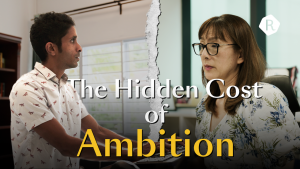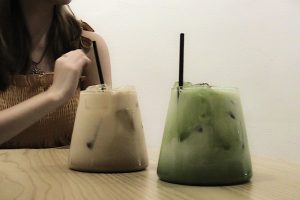“Gonna yeet myself outta here.”
“Oof. Fat mood.”
“Weird flex but okay.”
“Damn, she’s thicc af.”
“Ok boomer.”
If these sentences sound like an aneurysm given sentience, it means you’ve been long unplugged from the collective subconscious of young people. In other words: you’re old.
But that’s fine. Grass grows, birds fly, and language evolves as time marches on. While there’ve been a million think pieces about the slang of a new generation, there’s been little discussion about the uniquely Singaporean ways in which our youth—Gen Z and the younger millennials—are swearing and insulting each other.
Which swear words are timeless, which have changed, and which are new?
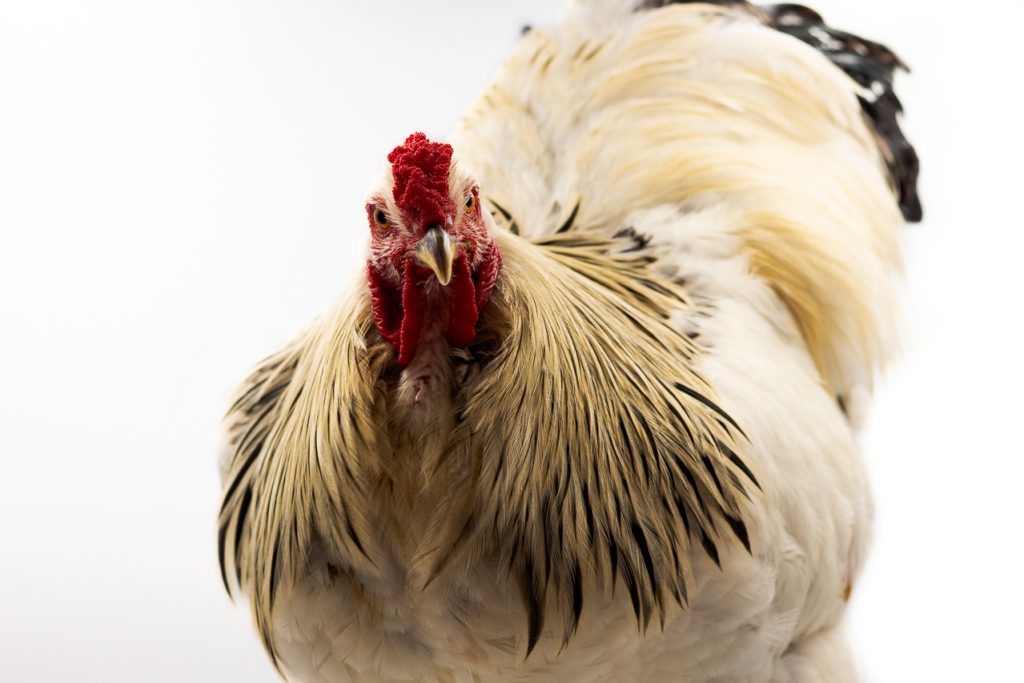
Animals
Ever since humans stood at the apex of the food chain, all animals have been culturally relegated to being beneath us. From ‘dishonour on your cow’ to ‘cina babi’, there are no shortage of examples. But two in our zoological zodiac stand out.
Man’s best friend gets a surprising amount of flak; dogs can be considered noisy and annoying, barbaric and bestial, or naive and subservient bootlickers. And of course, its female counterpart—bitch. All these interpretations go as far back as Ancient Greece.
On the other hand, ‘snake’ (alt. snek) is relatively recent, and it’s mostly students who do the hissing. Its negative connotation stretches back to biblical origins: as the opening parable to the world’s largest religion, the snake tricks gullible Eve into eating the forbidden fruit, earning its reputation for being cunning and treacherous.
It’s just a hunch, but perhaps the newfound prevalence of this insult stems from our competitive education system becoming increasingly cutthroat?
Race
Racialised insults are the bread and butter of every bigot’s arsenal of vulgarities, and I won’t be getting into the thick of them. However, one slur in particular stands out, precisely because it isn’t used as an insult.
The n-word is an ethnic slur directed at people of African descent, popularised during the height of slavery in America. While it is still used disparagingly, it has also been reappropriated by black communities, most notably in hip hop. By reclaiming the word (swapping out the -er ending with an -a), they attempt to strip away the power imbalance afforded by it; used by a black person, it’s akin to saying ‘brother’ or ‘sister’.
But hip-hop and rap is now a global phenomenon. As a result, non-black people—especially Asians—use the word as black people do, because hip hop lyrics often include the word and black culture is in vogue these days. Most infamously was Rich Brian’s previous stage name, a portmanteau of Chinese and the n-word.
Singapore is not much different. We might not have well known hip hop artists, but with the culture permeating Spotify playlists, we have a new generation using the n-word just like any other swear.
Mental Disabilities
‘Retard’ has become so ingrained in our vernacular, it has its own panoply of portmanteaus: ‘libtard’, ‘fucktard’, ‘gaytard’. Labelling someone disabled is disempowerment 101, insinuating that one is lesser as a person because they have less ability.
Under meritocratic capitalism, this mindset is more common than MRT breakdowns in 2015.
Terms like ‘dunce’, ‘degen’, and ‘stupiak’ have been steadily gaining recognition. But above all, the spotlight shines on ‘autism’. It is not in itself a slur, but has been used as one. While autism has been used demeaningly for years, its prominent usage in the gaming community—particularly by streamers—has propelled it into the mainstream.
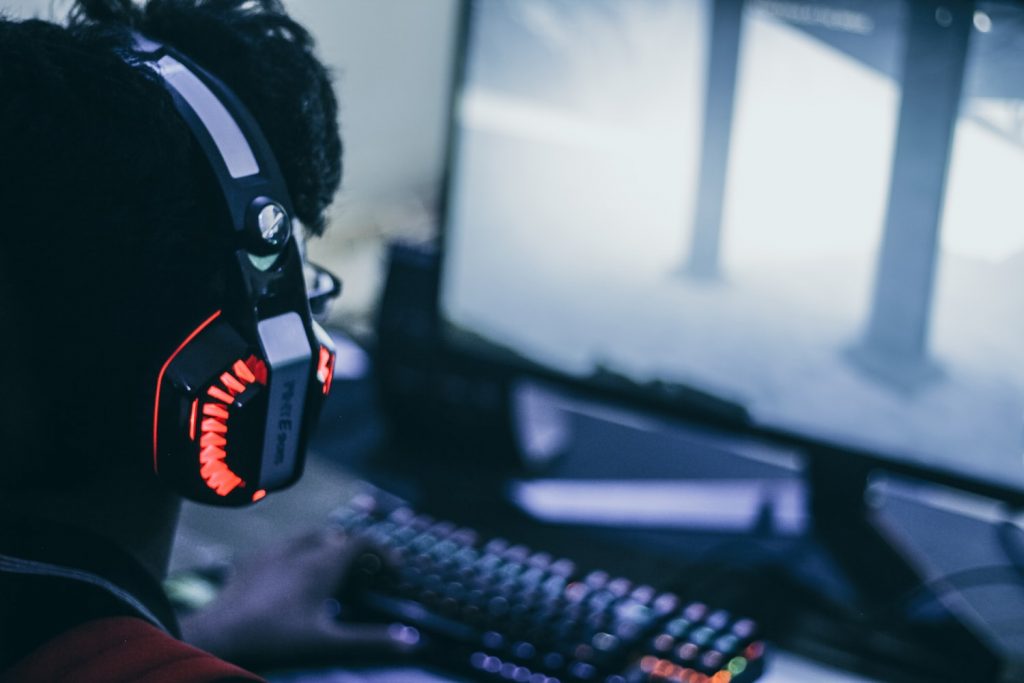
Gaming is a uniquely 2010s phenomenon. YouTube’s most subscribed personalities heavily feature gaming related channels, owing to the success of the Let’s Play genre. With the advent of Twitch, game streaming has becoming increasingly popular, and eSports events have caught on to emulate the thrill of watching actual sports.
Insults like ‘noob’ and ‘scrub’ have gaming roots, but are now part of common parlance. The former is short for ‘newbie’, used to decry someone new at a game and therefore bad at it. The latter goes all the way back to the 1500s, used to denigrate prostitutes. From the 1800s, it was used in the arena of sports for inferior athletes, and has since carried into the sphere of competitive gaming.
Autism isn’t the only medical term turned into an insult by the gaming community. ‘Triggered’ was once used in psychology to describe elements that might set off one’s trauma, but is now used as a taunt (“you triggered?”) or an expression of frustration (“fuck I’m damn triggered”).
With trigger warnings popping up in an age of wokeness, there has been pushback against the term. Folks against social justice warriors have reappropriated ‘triggered’ by infusing it with sarcasm and making a mockery out of it, or as evidence of how weak and coddled society has become.
Subcultures
Nerds have been losers even before alpha males reigned. But as our interests become more niche, being nerdy about certain forms of media (prestige TV) becomes okay, but not others. When Gen Z insults based on interests, it’s a lot more specific than calling someone a geek.
Till today, Japanese manga and animation is often met with cringe in Singapore—unless it’s a Miyazaki or Makoto Shinkai film.
‘Weaboo’—‘weeb’ for short—is a derogatory word meant to refer to someone obsessed with Japanese culture. ‘Otaku’ is another semi-pejorative that has come to be synonymous with weeb, though its actual meaning is complex and different enough.
Unless you’re a self professed weeb and wear it as a badge of honour, when someone calls you one, it’s not a compliment.
As different modes of media and subcultures wax and wane, even fandom names can be used as insults. Whether it’s the BTS Army or Swifties or Bronies, as our youth start identifying more with what they love and consume, these identities can then be turned into weapons against them.
Social Aesthetics
Just as jocks despise the geeks, those at the bottom of the food chain shake their fists at those at the top. But in the Year of Our Memelord 2k19, Mean Girls cliches have undergone their own metamorphosis.
I’m defining this category of ‘social aesthetics’ as newly minted terms to describe archetypes that have popped up in social interactions.
The ‘basic bitch’ (and her sibling the ‘dumb hoe’) is the bimbo’s evolution, vapid in her crop top and yoga leggings while sipping on seasonal Starbucks. There’s the ‘fuckboy’ who’s the Tinder era’s playboy, misleading young women into hookups then ghosting on them.
While ‘e-boys and e-girls’ are the digital eidolons taking over TikTok, their Singaporean counterparts are the ‘YP’s (young punks). Once upon a time these ah beng adjacents could be seen blasting nightcore mandopop from their PMDs. But nowadays, after the ban, they’ve mostly retreated to making Singlish memes on social media.
On the other hand, ‘XMMs’ (xiao mei mei, little sister) are the younger cousins of ah lians. They are not rowdy and uncouth, but straddle that uncomfortable line between cute and sexy like a Japanese idol. This infantilisation is often coupled with pinafores and other schoolgirl-related accessories, which attract ‘XMM hunters’ who crave this particular aesthetic.
Needless to say, YPs, XMMs, and those who chase them are all looked upon in disdain.
But ‘rabak’ (along with diminutives rabz and rabz-kebabz) remains the ubiquitous, all-encompassing Singaporean insult. Originally meaning ‘torn’ (as in torn clothing) in Malay, nowadays it’s colloquially used to mean ‘hardcore’, ‘wild’, and ‘out of control’—and not in a good way.
Overuse has made it such that “rabak lah bro” kind of means “that’s fucked up”. Depending on context, calling someone rabak could mean they have bad grades, an alcohol problem, or did something very silly.
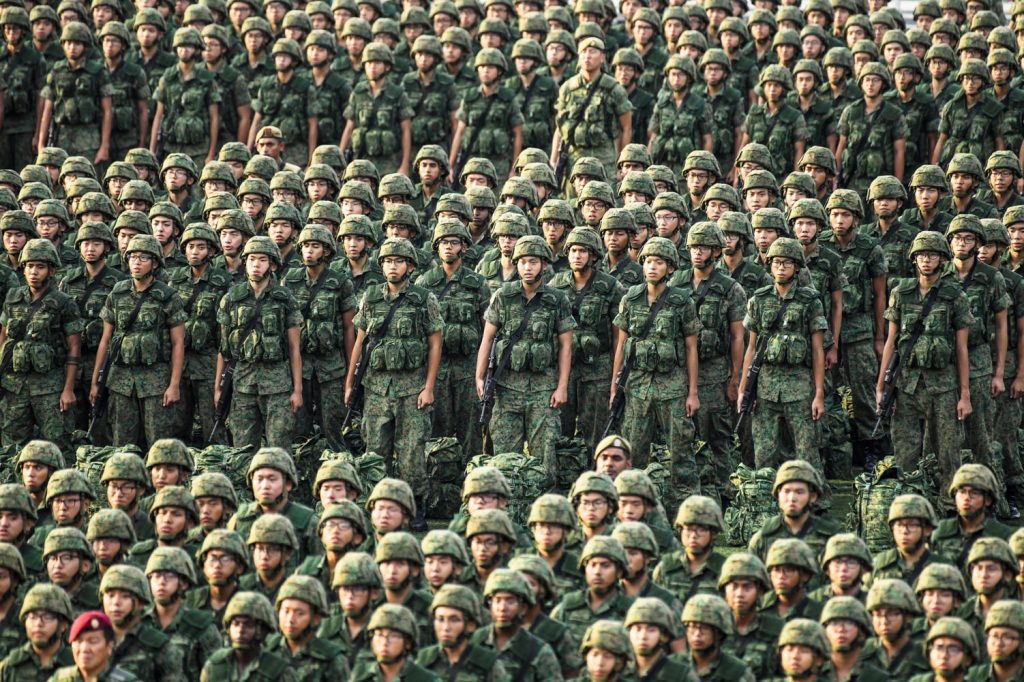
For instance:
National Service
Like the number four uniform, these swears are evergreen and uniquely Singaporean. The two-year long collective trauma has spawned a rich lexicon applicable even after one’s service has ended.
In every group project there’s the ‘chao keng’ (feigning sickness), and the ‘wayang’ (acting, for show). There are those ‘occifers’ (bastardised spelling of officer) who believe their one bar should confer upon them special status outside of the army. There are ‘bao toh’s (bun knife) who snitch and ‘horlan’s (deliberate mispronunciation of Holland) who get lost even with Google Maps.
National Service has provided a wealth of insults-as-coping-mechanisms that have greatly expanded Singaporeans’ vocabularies. The same holds true for today’s doe-eyed recruits and lao jiaos wishing for ORD to give them the sweet release of death.
Sex
This category’s pretty broad: there’s the slut-shaming, and the fucking. But following the spirit of the previous section, the most common usage has been slinging genitalia-laden insults—dreamt up by enciks in every permutation.
It’s interesting how vaginal swears are far more hard hitting than penile ones—just think of ‘cunt’ vs ‘cock’—and in most languages it’s used as a substitute for ‘fuck’ itself. Only the English ‘pussy’ is used to denote ‘coward’, framing femininity as weak rather than the absence of masculinity from saying ’no balls’ (eg. bo lampa).
Playing mother often comes in tandem with the vagina. Phrases like ‘KNNBCCB’ and ‘pukimak kau’ tick all the boxes—fuck your mother’s vagina—for full impact.
Certain language variants might trickle into the Singaporean mainstream depending on usage as well. For example, DOTA players—which consists of many Filipinos—commonly use the Tagalog ‘putang ina mo’ which means ‘your mother is a whore’ but is again intended as ‘fuck you’.
Queerness
Ah homophobia, making ‘gay’ a pejorative when nowadays it’s just a descriptor—similar to ‘autism’. It’s so common even primary school children use it to insult each other.
Even so, gay and its synonymous f-word slur are hardly used to denigrate actual homosexuality. Rather, they are used when one displays characteristics stemming from homosexual stereotypes: being feminine, or flamboyant, or ridiculous.
“Damn gay sia!” really denotes socially deviant behaviour by branding them as abnormal transgressions. You don’t want to be singled out as the queer, weird one, right?
Fuck
Of course, we round up our list with the champion of swears.
What’s interesting is the myriad of mix-and-match variations which have been dreamt up. There’s ‘fugly’, ‘fuck face’, ‘fat fuck’, ‘fuckchild’—the list is never ending and self explanatory. Slap ‘fuck’ as a prefix or suffix onto pretty much anything, and you have a new swear word.

For one, portmanteaus are an efficient way of evolving language. There’s a grotesque elegance in mish-mashing words together to create a new whole greater than the sum of its parts. And as Darwin predicted, the most catchy and relevant variations will survive to escape the tongues of a new generation.
In addition, our increasingly globalised culture has caused global terminology—in particular the Western world considering our Anglocentric consumption of media—to immigrate to Singapore through the Internet.
With gaming—and watching gaming—being the medium the 2010s has been characterised by, its linguistic baggage has carried over. Many subcultures, social aesthetics, and our understanding of race and queerness has also been imported from across the globe. The way our youth swear is certainly proof of foreign interference, although not in the way that our ministers would like to think.
But this cross-continental hodgepodge also reveals how we consume and regurgitate language without being mindful of the contexts they came from.
Take the n-word for example. Singaporeans of African descent are so few most Singaporeans will never interact with a black person. As such, we are able to perform the appropriate mental gymnastics to justify our usage of the racial slur—there’s no legacy of slavery here, or a history of police brutality very present in other parts of the globe.
This is one instance of Singaporeans being unable to differentiate a swear from a slur. While both are offensive, only slurs target specific groups of people based on their essential qualities—race, gender, sexuality, ability, etc.—with the intent to deprecate them.
Some slur usage—like the n-word—happens because we’re alienated from their original contexts. But the prevalence of other slurs reveal which values our country prioritises, and where our marginalised lie.
You can claim to support the repeal of 377A, but if you’re saying ‘gay’ like it’s an STD, maybe there’s some homophobia you have to work out.
And in a culture where meritocracy is like The Hunger Games, it’s no wonder language borrowed from competitive gaming maps over so easily, and mental disabilities are so easily looked down upon.
Whatever the case, we’re not here to police your speech—this story’s intention was merely to examine the changing contexts of our language. Painting vulgarities as some sort of intergenerational chasm with older Singaporeans taking the moral high ground is clearly false, because we’ve been swearing since forever. Some words might have changed, but the spirit remains the same.
However, we’ve also seen how insults are not all made equal. It’s now up to Gen Z—for all their linguistic creativity—to decide how thoughtful or flippant they want to be with the words that will define their generation.


